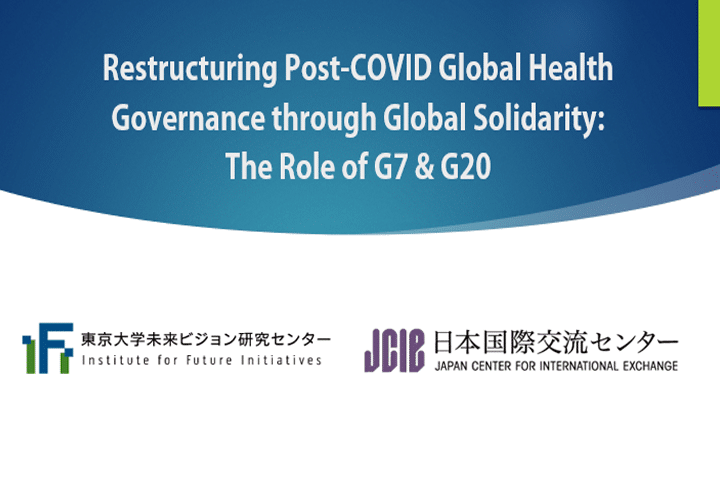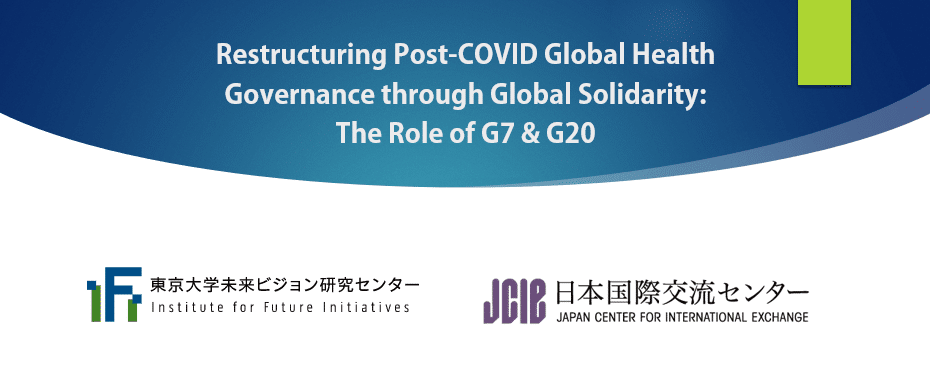
JCIE co-hosted a public symposium along with The University of Tokyo Institute for Future Initiatives (IFI) on the role of global solidarity in restructuring global health governance following the COVID-19 pandemic. The pandemic has exposed the health disparity between the Global South and North with the global inequity in access to essential medical tools and services. Health inequity within countries became evident as infections were found to be more prevalent among people and communities under vulnerable conditions. Several challenges need to be addressed, including how health challenges relate to and compound with other threats such as climate change.
Given this context, in 2021, JCIE and IFI convened a study group to conduct a one-year research project, The International Order and Japan’s Role in the COVID and Post-COVID Era. The project examined the issue of restructuring global health governance given COVID-19 and how Japan should contribute to the effort in view of Japan’s role as a host of the G7 Summit in 2023. Based on the recommendations of the study group, this symposium featured a discussion on how to restructure the global health governance architecture based on global solidarity to address the issues of global health inequity and respond to the interconnectivity between health and other challenges, as well as the role that G7 and G20 play in this process.
Agenda
Opening Remarks
AKIO OKAWARA, President & Chief Executive Officer, JCIE
Overview of Recommendations
HIDEAKI SHIROYAMA, Director, IFI; Professor of Graduate School of Public Policy and Graduate Schools for Law and Politics, University of Tokyo
Comments
ILONA KICHBUSCH, Member, T7 Global Health Crisis Task Force; Founder, Global Health Centre at Graduate Institute of International & Development Studies in Geneva
HASBULLAH THABRANY, Lead Co-Chair, T20 Global Health Security and COVID-19 Task Force; Former Dean of the School of Public Health, University of Indonesia
Panel Discussion (listed in alphabetical order)
YASUSHI KATSUMA, Professor, Internationa Studies Program, Graduate School of Asia-Pacific Studies, Waseda University; Director of Global Health Affairs and Governance, Institute for Global Health Policy Research (iGHP), National Center for Global Health and Medicine (NCGM), Japan; Co-Chair, T20 Global Health Security and COVID-19 Task Force
ILONA KICKBUSCH, Co-Chair, T7 Global Health Task Force; Founder and Chair, Global Health Centre at Graduate Institute of International & Development Studies in Geneva
SAEDA MAKIMOTO, Principal Research Fellow, JICA Ogata Research Institute, Japan International Cooperation Agency (JICA)
HARUKA SAKAMOTO, Associate Professor, Department of International Affairs and Tropical Medicine, Tokyo Women’s University
KAZUTO SUZUKI, Professor, Graduate School of Public Policy, University of Tokyo
HASBULLAH THABRANY, Lead Co-Chair, T20 Global Health Security and COVID-19 Task Force; Former Dean of the School of Public Health, University of Indonesia
Closing Remarks
HIDEAKI SHIROYAMA, Director, IFI; Professor of Graduate School of Public Policy and Graduate Schools for Law and Politics, University of Tokyo
About the Speakers
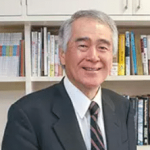
AKIO OKAWARA
Akio Okawara is president and CEO of JCIE since April 2014. He also serves as Japanese director of the UK-Japan 21st Century Group, a member of the Japanese-German Forum and the Korea-Japan Forum, a member of the Foundation Council of the Japanese-German Center Berlin, and director of the Global Health and Human Security Program Executive Committee and of the Friends of the Global Fund, Japan (FGFJ). He formerly served as a panel member of the US-Japan Conference on Cultural and Educational Interchange (CULCON) from 2015 to 2020. Prior to joining JCIE, he was executive director of the Sumitomo Shoji Research Institute, where he oversaw research and analysis on domestic and international political and economic trends and on the promotion of the use of new technology in cooperation with universities and other research institutions. Mr. Okawara graduated from Keio University with a BA in law and also studied at Williams College in Massachusetts.
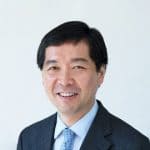
HIDEAKI SHIROYAMA
Hideaki Shiroyama is a professor of public administration at the Graduate School of Public Policy and the Graduate School for Law and Politics, and the director of the Institute for Future Initiatives at the University of Tokyo. He studies about global governance/ international administration, science/ technology and public policy and policy process. He was the Dean of the Graduate School of Public Policy from 2014 to 2016 and the Director of Policy Alternatives Research Institute from 2010 to 2014. He is also the director of Science, Technology, Innovation and Governance Program and the Coordinator of Graduate Program for Social Design and Management. He serves as a member of various government advisory councils on higher education, nuclear safety, consumer safety, space policy, AI/ IT and global health. His major publications include “Technology Governance” in Sustainability Science: A Multidisciplinary Approach, United Nations University Press, 2011, “Governance for sustainability: knowledge integration and multi-actor dimensions in risk management”, Sustainability Science, vol.7 (2012), International Administration (Yuhikaku 2013) and Science, Technology and Politics (Minerva Publisher 2018), Global Health Governance (Toshindo 2020).
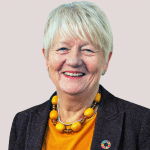
ILONA KICKBUSCH
Ilona Kickbusch is the Founder and Chair of the Global Health Centre at the Graduate Institute of International and Development Studies in Geneva. She is a member of the Global Preparedness Monitoring Board, the WHO Council on the Economic of Health for All, Council Chair to the World Health Summit in Berlin and vice-president of the European Health Forum Gastein. She has been involved in German G7 and G20 activities relating to global health and the global health initiatives of the German EU presidency in 2020. She chaired the international advisory board for the development of the German global health strategy and advised on the establishment of the WHO Hub on Pandemic and Epidemic Intelligence. She works on a continuous basis with EU presidencies on global health. She publishes widely and serves on many commissions and boards. She initiated the @wgh300 list of women leaders in global health. She is program chair of the leaders in health network SCIANA. She is co-chair of a Lancet FT Commission on “Governing health futures 2030: growing up in a digital world.” She is honorary professor at the Charité, Berlin. Professor Kickbusch has had a distinguished career with the World Health Organization. She was key instigator of the Ottawa Charter for Health Promotion and WHOs Healthy Cities Network. She was the director of the Global Health Division at Yale University School of Public Health and responsible for the first Fulbright Programme on global health. She has received many prizes and recognitions. She has been awarded the Cross of the Order of Merit of the Federal Republic of Germany (Bundesverdienstkreuz) and the WHO Medal for contributions to global health.
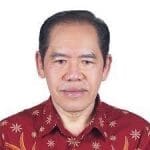
HASBULLAH THABRANY
Hasbullah Thabrany was a professor and former Dean of the School of Public Health and former chairman of the Centre for Health Economics and Policy Studies, Universitas Indonesia. Since 2019 he is serving as the Chief of Party of the USAID of Health Financing Acitivity in Indonesia aiming for providing evidence base policy to ensure sustainable health financing in Indonesia. This project is implemented by ThinkWell.Global, a health financing corporation based in Washington DC, USA. Dr. Thabrany has been instrumental in the development of the National Health Insurance Scheme (JKN) in Indonesia. Dr. Thabrany worked with RAND Corporation in Santa Monica, California, from 1992 to 1995. Realizing that there was a severe shortage of professionals in health insurance and social security, Dr Thabrany established PAMJAKI (Association of Health Insurance Professionals of Indonesia) in 1998. He served as its chairman until October 2010. He was a key person in reforming health care and social security in Indonesia when he was a secretary of the Task Force for social health insurance reform, established by President Megawati. He publishes a book entitle Jaminan Kesehatan Nasional (JKN), detailing the design and current achievement of UHC in Indonesia. He was the Chair of the Center for Health Economics and Policy Studies, Universitas Indonesia. Since the National Health Insurance (JKN) was implemented in 2014, he has been conducting research and evaluation to advocate the JKN to be implemented consistently with the principles of improving access and quality of care. He established the Indonesian Health Economic Association in 2013 and becomes the chairman since then. Dr. Thabrany has a medical degree from the Universitas Indonesia and MPH & DrPH degrees from the University of California, at Berkeley, USA.
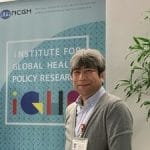
YASUSHI KATSUMA
Yasushi Katsuma is a professor at the International Studies Program in the Graduate School of Asia-Pacific Studies (GSAPS) at Waseda University and also serves as a member of the university’s Board of Trustees. At the National Center for Global Health & Medicine (NCGM), Japan, he is the director of the Department of Global Health Affairs & Governance in the Institute for Global Health Policy Research (iGHP). At Vietnam-Japan University (VJU) in Hanoi, he is a professor and co-director of the Master’s Program in Global Leadership. He is also a visiting professor at the United Nations University Institute for the Advanced Study of Sustainability (UNU-IAS). Currently, he serves as an International Advisory Board member for the BMJ in London, as a director for the Japan Society for International Development (JASID), as a councilor for the the Japan Association for International Health (JAIH). He also currently serves as a board member for the Japanese Organization for International Cooperation in Family Planning (JOICFP) and the GLM Institute. Previously, he served as an Advisory Panel member for the United Nations Development Programme (UNDP)’s Human Development Report, an advisor in Law for Health for the World Health Organization Regional Office for the Western Pacific (WHO-WPRO), as a vice-president for the Japan Society for International Development (JASID), and as a secretary-general and director for the Japan Association for United Nations Studies (JAUNS). Prior to the current positions, he worked for the United Nations Children’s Fund (UNICEF) in Mexico, Pakistan, Afghanistan and Tokyo. Before joining the United Nations, he worked as development consultant for Japan’s official development assistance (ODA) at the Engineering & Consulting Firms Association (ECFA), Japan, and conducted research in Bangladesh, the Philippines, Paraguay, Russian Far East and Thailand. He received his Ph.D. in Development from the College of Agricultural & Life Sciences of the University of Wisconsin-Madison, his LL.M. and LL.B. from Osaka University, and his BA from International Christian University.
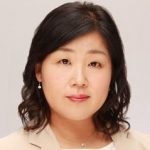
SAEDA MAKIMOTO
Saeda Makimoto began working at JICA after completing her master’s degree at the University of Tokyo Graduate School of Medicine. From 1998 to 2000, she was transferred to the Western Pacific Regional Office of WHO, where she was involved in projects on polio eradication and immunization within the region while also assisting with the coordination of Japan’s health assistance priorities. At JICA, she managed technical cooperation and grant assistance projects in the field of health and medical care, and also worked as a section chief for health projects focusing on maternal and child health and nutrition in the Asian region. In 2017, she joined the Sadako Ogata Research Institute for Peace and Development at JICA (JICA Ogata Research Institute) as a principle research fellow, and in 2019, she was appointed director of human development, where she oversaw the Think 20 (T20) Global Health Group in Tokyo.
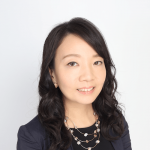
HARUKA SAKAMOTO
Haruka Sakamoto, MD, MPH, PhD is a primary care physician and associate professor at the Department of International Health and Tropical Diseases, Tokyo Women’s Medical University. She got her M.D from Sapporo Medical University and worked as a physician at St Luke’s International Hospital in Tokyo for several years. She then got a scholarship from the World Bank and got her MPH at the Harvard School of Public Health and got PhD in public health from the University of Tokyo in 2021. From 2011-2013 and 2016, she worked at the international cooperation department, Ministry of Health, Labour and Welfare of Japan, where she was deeply involved in health policy activities in Japan. Her current research focuses on health system strengthening, health care financing, and politics in global health. She’s currently working as a consultant at the WHO Western Pacific Regional Office and a project researcher at Department of Global Health Policy, Graduate School of Medicine, the University of Tokyo.
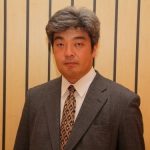
KAZUTO SUZUKI
Kazuto Suzuki is Professor of Science and Technology Policy at the Graduate School of Public Policy at the University of Tokyo, Japan, and senior fellow of Asia Pacific Initiative (API), the independent policy thinktank. He graduated Department of International Relations, Ritsumeikan University, and received Ph.D. from Sussex European Institute, University of Sussex, England. He has worked in the Fondation pour la recherche stratégique in Paris, France as assistant researcher and the Associate Professor at the University of Tsukuba from 2000 to 2008 and served as Professor of International Politics at Hokkaido University until 2020. He served as an expert in the Panel of Experts for Iranian Sanction Committee under the United Nations Security Council from 2013 to July 2015. He currently serves as the President of Japan Association of International Security and Trade. His research focuses on the conjunction of science/technology and international relations; subjects including space policy, non-proliferation, export control and sanctions. His recent work includes Space and International Politics (2011, in Japanese, awarded Suntory Prize for Social Sciences and Humanities), Policy Logics and Institutions of European Space Collaboration (2003) and many others.

